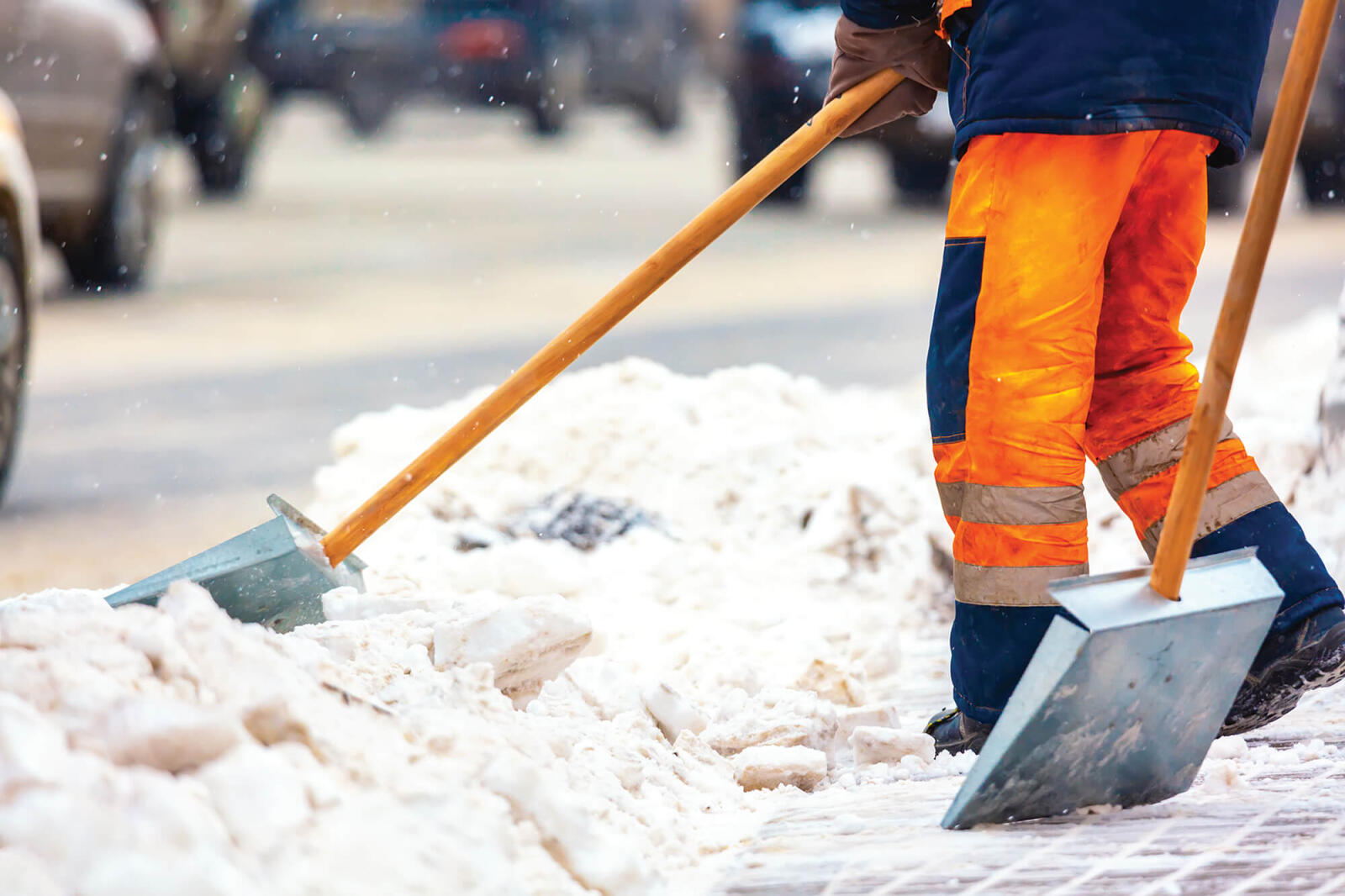May 4, 2021

Legislative solutions to slip and fall liability
Ontario’s Bill 118 marks huge step in the right direction
BY ROBERT KENNALEY
 Twenty years ago, winter maintenance contractors faced an insurance crisis: the number of insurers providing coverage was decreasing and premiums were escalating rapidly, all in response to an increasing number of slip and fall claims and insurance payouts. In response, Landscape Ontario and the Canadian Nursery Landscape Association took a number of steps, including a leading role in creating and marketing HortProtect and developing a standard form contract for winter maintenance services in the commercial context. They also engaged in efforts to effect change through political and bureaucratic means.
Twenty years ago, winter maintenance contractors faced an insurance crisis: the number of insurers providing coverage was decreasing and premiums were escalating rapidly, all in response to an increasing number of slip and fall claims and insurance payouts. In response, Landscape Ontario and the Canadian Nursery Landscape Association took a number of steps, including a leading role in creating and marketing HortProtect and developing a standard form contract for winter maintenance services in the commercial context. They also engaged in efforts to effect change through political and bureaucratic means.Recently, their government relations efforts helped produce very fruitful results: on January 29, 2021, Bill 118 was proclaimed into law in Ontario, bringing changes to the Ontario Occupiers’ Liability Act. The Act is essentially a codification of the law of occupiers or premises liability that has existed at common law for well over 100 years. Similar legislation has been passed in most Canadian jurisdictions.
Understanding Bill 118 changes requires a basic understanding of occupier’s liability legislation. First, a legal obligation is imposed on an occupier of a premises to take reasonable care to see that persons entering the premises are reasonably safe. Generally, such legislation will provide that any person or entity that has responsibility for, or control over, a premises is an “occupier” and there can be more than one occupier.
An occupier need not keep its premises free of snow and ice. Rather, the occupier must generally take reasonable steps to keep the premises safe in all of the circumstances. In relation to commercial (as opposed to residential) premises, the occupier is generally expected to have a reasonable system in place to address the risks of snow and ice. The system need not be full-proof, and what is reasonable will vary in the circumstances.
An occupier may also generally contract with a maintenance company to meet some of its responsibilities. The contractor does not, however, become an “occupier” by simply agreeing to assume some of the occupier’s obligations under a maintenance contract. Ontario’s Occupiers’ Liability Act, for example, allows the occupier to avoid liability for a slip and fall that is caused by the negligence of a contractor if the occupier acted reasonably in entrusting the work to the contractor, if the occupier took reasonable steps to satisfy itself that the contractor was competent and that the work had been properly done, and if it was reasonable that the contractor’s work be undertaken.
The recent Bill 118 changes to Ontario’s Occupiers’ Liability Act bars any action for personal injury damages caused by snow or ice conditions against an occupier or independent contractor employed to remove snow or ice from the premises when the injury occurred, unless a written notice of the claim is personally served on or sent by registered mail to such the occupier or independent contractor within 60 days. (Exceptions apply where the injury results in death or where a judge finds the claimant has reasonable excuse for not giving the notice and that the defendant(s) are not prejudiced).
The changes are substantial because (other than in relation to municipally owned lands) claimants were previously faced only with the statutory two year limitation period established under Ontario’s Limitations Act.
The changes will unquestionably result in a reduced number of claims and insurance payouts. They will also hopefully, over time, result in reduced premiums for contractors.
There will be adjustments to be made as claims will no doubt be commenced when a claimant is unsure as to what (if any) significant damages have occurred. This may lead to more protracted litigation processes. In addition, contractors will have to ensure they contact counsel promptly if they receive a notice of a claim, as the act places obligations on them in such a circumstance.
Whether or not other Canadian jurisdictions will follow Ontario’s lead in creating a short notice period for slip and fall claims remains to be seen. That outcome is, of course, quite possible (if not probable).
Significantly, however, the changes do nothing to limit or alter the scope of a contractor’s liability for a slip and fall claim if the claimant meets the notice period. In that circumstance, all of the uncertainties and costs associated with the slip and fall claim remain. For this reason, Landscape Ontario and other associations remain hopeful that additional solutions will be considered by legislators.
In this regard, Landscape Ontario has supported what has become known as “the New Hampshire Model” of legislative change. The model’s focus is on limiting the amount of salt that is unnecessarily used to manage the risk of the slip and fall. Towards protecting the environment, it recognizes that contractors will often be encouraged to put down more salt than is necessary, as a way to avoid negligence claims. The legislation:
- Establishes a regime to certify commercial winter maintenance contractors as being qualified in terms of best management practices;
- Deems that certified commercial applicators (and those who retain them) will not be liable for damages caused by snow and ice absent gross negligence or reckless disregard;
- Presumes that certified commercial applicators (and those who retain them) will have maintained premises in accordance with best management practices;
- Provides that the certified commercial applicator need not prove compliance with best practices in the event of a slip and fall claim; but
- Shifts the onus to the slip and fall claimant to prove gross negligence or reckless disregard of the hazard.
The impact of such a program would be huge. From an environmental perspective, less salt would be used. Owners and property managers would naturally only hire certified contractors to take advantage of the liability shield and insurers would most likely price non-certified contractors out of the marketplace.
Bill 118 and such legislation is, I suggest, is a very good and positive step. Landscape Ontario and the others who pushed for it should be commended. Hopefully, The New Hampshire Model comes next.
Rob Kennaley is with Kennaley Construction Law, a construction law firm with offices in Simcoe, Toronto and Barrie, Ont. For more information please visit kennaley.ca. This material is for information purposes and is not intended to provide legal advice in relation to any particular fact situation.